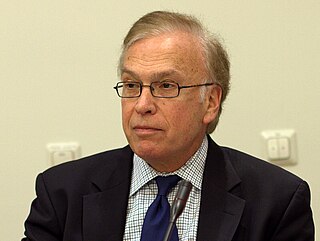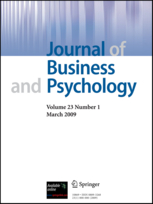A nonprofit organization (NPO) or non-profit organisation, also known as a non-business entity, or nonprofit institution, is a legal entity organized and operated for a collective, public or social benefit, in contrary with an entity that operates as a business aiming to generate a profit for its owners. A nonprofit is subject to the non-distribution constraint: any revenues that exceed expenses must be committed to the organization's purpose, not taken by private parties. An array of organizations are nonprofit, including some political organizations, schools, business associations, churches, social clubs, and consumer cooperatives. Nonprofit entities may seek approval from governments to be tax-exempt, and some may also qualify to receive tax-deductible contributions, but an entity may incorporate as a nonprofit entity without securing tax-exempt status.
The voluntary sector, independent sector, or civic sector is the realm of social activity undertaken by organizations that are non-governmental nonprofit organizations. This sector is also called the third sector, community sector, and nonprofit sector, in contrast to the public sector and the private sector. Civic sector or social sector are other terms for the sector, emphasizing its relationship to civil society. Richard Cornuelle coined the term "independent sector" and was one of the first scholars to point out the vast impact and unique mechanisms of this sector. Given the diversity of organizations that comprise the sector, Peter Frumkin prefers "non-profit and voluntary sector".
The term nonprofits research is used to describe the academic enterprise devoted to teaching and research on nonprofit organizations and non-governmental organizations (NGOs), voluntary associations, voluntarism and voluntary action, philanthropy, civil society, and related activities. It is a loosely bounded, multidisciplinary, practice-oriented community.
Marketisation or marketization is a restructuring process that enables state enterprises to operate as market-oriented firms by changing the legal environment in which they operate.
Organizational effectiveness is a concept organizations use to gauge how effective they are at reaching intended outcomes. Organisational effectiveness is both a powerful and problematic term. The strength of it is that it may be used to critically evaluate and improve organisational activities. It's problematic since it means various things to different individuals. And there are other alternative methods for measuring organisational performance. Organizational effectiveness embodies the degree to which firms achieve the goals they have decided upon, a question that draws on several different factors. Among those are talent management, leadership development, organization design and structure, design of measurements and scorecards, implementation of change and transformation, deploying smart processes and smart technology to manage the firms' human capital and the formulation of the broader Human Resources agenda.

NTEN: The Nonprofit Technology Enterprise Network is an international nonprofit organization based in the United States. Founded in 2000, NTEN is primarily a community for those interested in the use of technology to support nonprofit organizations and issues. Its major activity is an annual international conference, the Nonprofit Technology Conference, for nonprofit organizations, IT staff, consultants, and technology vendors. It also hosts various virtual and regional events throughout the year.

Lester M. Salamon was a professor at Johns Hopkins University. He was also the director of the Center for Civil Society Studies at The Johns Hopkins Institute for Health and Social Policy Studies. Salamon has written or edited over 20 books in addition to hundreds of articles, monographs and chapters that have appeared in Foreign Affairs, The New York Times, Voluntas, and numerous other publications. He was a pioneer in the empirical study of the nonprofit sector in the United States, and is considered by many experts in his field to have been a leading specialist on alternative tools of government action and on the nonprofit sector in the U.S. and around the world.
Aseem Prakash is a professor of Political Science, the Walker Family Professor of the College of music and Sciences and the Founding Director of the UW Center for Environmental Politics. He serves as the General Editor of the Cambridge University Press Series on Business and Public Policy and the Associate Editor of Business & Society. In addition to serving on editorial boards of several additional journals, he has been elected as the Vice-President of the International Studies Association (2015-2016). Professor Prakash is a member of National Academies of Sciences, Engineering, and Medicine's Board on Environmental Change and Society and International Research Fellow at the Center for Corporate Reputation, University of Oxford. He was elected to the position of the Vice President of the International Studies Association for the period, 2015-2016. He is the recipient of International Studies Association, International Political Economy Section's 2019 Distinguished Scholar Award that recognizes "outstanding senior scholars whose influence and path-breaking intellectual work will continue to impact the field for years to come as well as the Associations' 2018 James N. Rosenau Award for "scholar who has made the most important contributions to globalization studies". The European Consortium for Political Research Standing Group on Regulatory Governance awarded him the 2018 Regulatory Studies Development Award that recognizes a senior scholar who has made notable "contributions to the field of regulatory governance."
Nonprofit studies is a multidisciplinary field of teaching and research that focuses on practices of the nonprofit sector and can date back to the 1920s. This area of inquiry examines the management and effectiveness of the nonprofit sector, and has sub-areas of research including administration, marketing, communication, economics, human resources, philanthropy, ethics, law, information technology, social entrepreneurship, grant writing, policy, fundraising, advocacy, volunteerism, data research, and civic engagement.
Lucas C.P.M. Meijs a Dutch organizational theorist and Professor Volunteering, Civil Society and Businesses at the department Business-Society Management of the Rotterdam School of Management, Erasmus University Rotterdam and Professor Strategic Philanthropy at the Erasmus Centre for Strategic Philanthropy.

A voluntary group or union is a group of individuals who enter into an agreement, usually as volunteers, to form a body to accomplish a purpose. Common examples include trade associations, trade unions, learned societies, professional associations, and environmental groups.

Burton A. Weisbrod is an American economist who pioneered the theory of option value, and the theory of why voluntary nonprofit organizations exist, He also developed the methodology for valuing voluntary labor. He advanced methods for benefit-cost analysis of public policy by recognizing the roles of externality effects and collective public goods in program evaluation. He applied those methods to the fields of education, health care, poverty, public interest law, and nonprofit organization. Over a career of fifty years, he published 16 books and over 200 scholarly articles. He is currently the Cardiss Collins Professor of Economics Emeritus and a Fellow of the Institute for Policy Research at Northwestern University.
Julian Wolpert is Bryant Professor Emeritus of Geography, Public Affairs, and Urban Planning at Princeton University's Woodrow Wilson School, where he taught from 1973 to 2005 and chaired the Program in Urban and Regional Planning. He was previously a member of the Regional Science Department at the University of Pennsylvania (1963–73).
Brian O'Connell was an American author, academic, and public administrator who helped found Independent Sector, an organization that represents the interests of charities, foundations and nonprofit giving programs in the United States.

The Journal of Business and Psychology is a peer-reviewed academic journal covering research in organizational science. It publishes papers from industrial and organizational psychology, organizational behavior, human resources management, work psychology, occupational psychology, and vocational psychology. It was established in 1986 and is published quarterly by Springer Science+Business Media. The editor-in-chief is Steven G. Rogelberg.
Social Science Research is a quarterly peer-reviewed academic journal covering the field of sociology. It was established in 1972 by Academic Press and is currently published by Elsevier, which acquired Academic Press in 2000. The editor-in-chief is Stephanie Moller.
Jon Van Til is one of the pioneers in nonprofit organization research and education and the third sector, with particular interests in voluntary action, civil society and theories of the third sector. Dr. Van Til is Professor Emeritus of Urban Studies and Community Planning at Rutgers University, Camden.
The Association for Research on Nonprofit Organizations and Voluntary Action (ARNOVA) was founded and incorporated in 1971 by David Horton Smith, with the help of Burt R. Baldwin, Richard D. Reddy, and Eugene D. White Jr. as the Association for Voluntary Action Scholars (AVAS).
Chao Guo is a public administration scholar. Currently, he is Professor of Nonprofit Management in the School of Social Policy and Practice at the University of Pennsylvania. He is also Associate Faculty Director of Fox Leadership International at Penn. His research focuses on technology and nonprofits, representation and advocacy, nonprofit governance, social entrepreneurship, and collaboration within and across the nonprofit, private, and government sectors. His research has been cited 4,371 times according to Google Scholar, with an h-index of 22 and an i10-index of 31.





